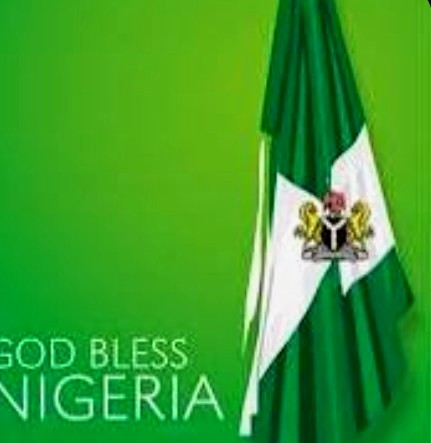The Politics of Rented Crowds: From Grassroots Conviction to Performative Politics
By Mohammed Salihu
In Nigeria’s political landscape, campaigns and governance have increasingly prioritized spectacle over substance, leading to an annual expenditure of approximately $100 million on political fakery during major elections.
In the early years following Nigeria’s independence, political rallies were genuine expressions of civic engagement. Citizens gathered in town squares and community halls, driven by ideology and the hope for national transformation. Political parties campaigned based on policy platforms, mobilizing grassroots networks rooted in ethnic, religious, and regional identities. People attended these rallies out of belief—not because they were paid or given t-shirts.
Today, these rallies are often dominated by hired crowds, who are bussed in from neighboring states, coached to chant slogans, and paid to wear party colors. Campaigning in Nigeria has become a spectacle, prioritizing optics over authenticity. This is the politics of rented crowds—one of the most corrosive and entrenched distortions of Nigeria’s democratic process.
Crowd Renting: Fakery as Strategy
Crowd renting—the practice of paying people to attend political events—exists globally, but its normalization in Nigeria is particularly concerning. This approach trades substance for spectacle, replacing genuine public interest with artificial enthusiasm. As a result, the illusion of popularity is created, detached from reality or meaningful policy discussions.
From Ideology to Incentives: A Political Timeline
– First Republic (1960–1966) Conviction over Choreography
Political parties such as the Northern People’s Congress (NPC), Action Group (AG), and National Council of Nigerian Citizens (NCNC) were founded on ideological conviction. Their rallies were organic, attracting citizens who believed they had a stake in Nigeria’s future. Politics was competitive, and performance was unnecessary—support was real and earned.
– Second Republic (1979–1983): The Seeds of Commercialization
With the return to civilian rule in 1979, campaigns began to offer stipends, souvenirs, and refreshments. Though modest, this marked a shift from mobilization to manipulation. Rally attendance increasingly became a tool for public relations rather than an indicator of authentic popularity.
– Military Rule (1984–1999): Performance over Popularity
During military regimes, crowd manipulation took a darker turn. Regime rallies were filled with coerced civil servants and organized unions. Popularity was rented, sometimes even demanded. The underlying message became clear: legitimacy could be manufactured.
– Fourth Republic (1999–Present): Institutionalized Fakery
With the return of democracy, there was an expectation of a revival of civic ideals. Instead, parties like the People’s Democratic Party (PDP) and, later, the All Progressives Congress (APC) professionalized the practice of crowd renting. Consultants are now tasked with managing sound, staging, and supporter “mobilization.” By 2015, this has evolved into a multimillion-naira industry.
Some rally attendees today are entirely unaware of the candidates’ names. For many young people, participation is less about politics and more about receiving “mobilization money.” The integrity of political engagement has degraded into transactional theatrics.
The Social Media Mirror
Ironically, the same social media platforms that promote these spectacles are also revealing their flaws. Viral videos show attendees collecting stipends or attending rival party events just days apart. The illusion of popularity is beginning to crack, and skepticism among many Nigerians is growing.
The $100 Million Illusion
Crowd renting has expanded into a shadow economy. Estimates suggest that the cost of this practice is around $100 million per major election year.
Breakdown:
– Major parties (APC, PDP, LP) each conduct hundreds of rallies.
– A typical rally attracts 5,000 to 30,000 attendees.
– Considering logistics, food, and stipends averaging $10 to $20 per person, a single party’s total cost may reach $22.5 million.
When multiplied across the three major parties—and minor ones—the total approaches $100 million per general election cycle.
What $100 Million Could Achieve Instead
In a country struggling with inadequate healthcare access, this money represents a colossal waste. Consider what could be funded instead:
– Build over 100 modern primary healthcare centers.
– Purchase 4,000 ambulances at $25,000 each.
– Train and deploy 20,000 community health workers for one year.
– Fund national immunization for millions of children.
Instead of these critical investments, the funds support staged performances that neither inform voters nor enhance democracy.
The Hidden Costs Beyond Cash
The politics of rented crowds has additional consequences:
– It misleads both citizens and politicians with false narratives.
– It diverts funds away from voter education and policy debate.
– It undermines political trust, particularly among first-time voters.
– It fails to contribute lasting value to Nigeria’s democratic development.
Toward Authentic Engagement
If Nigeria’s democracy is to mature, the political class must abandon the practice of renting applause. The future lies in door-to-door campaigns, town halls, policy debates, and genuine civic conversations. Popularity should be earned through trust—not staged in stadiums. The true measure of leadership is not fabricated but based on authentic engagement and commitment to the people’s needs.


















